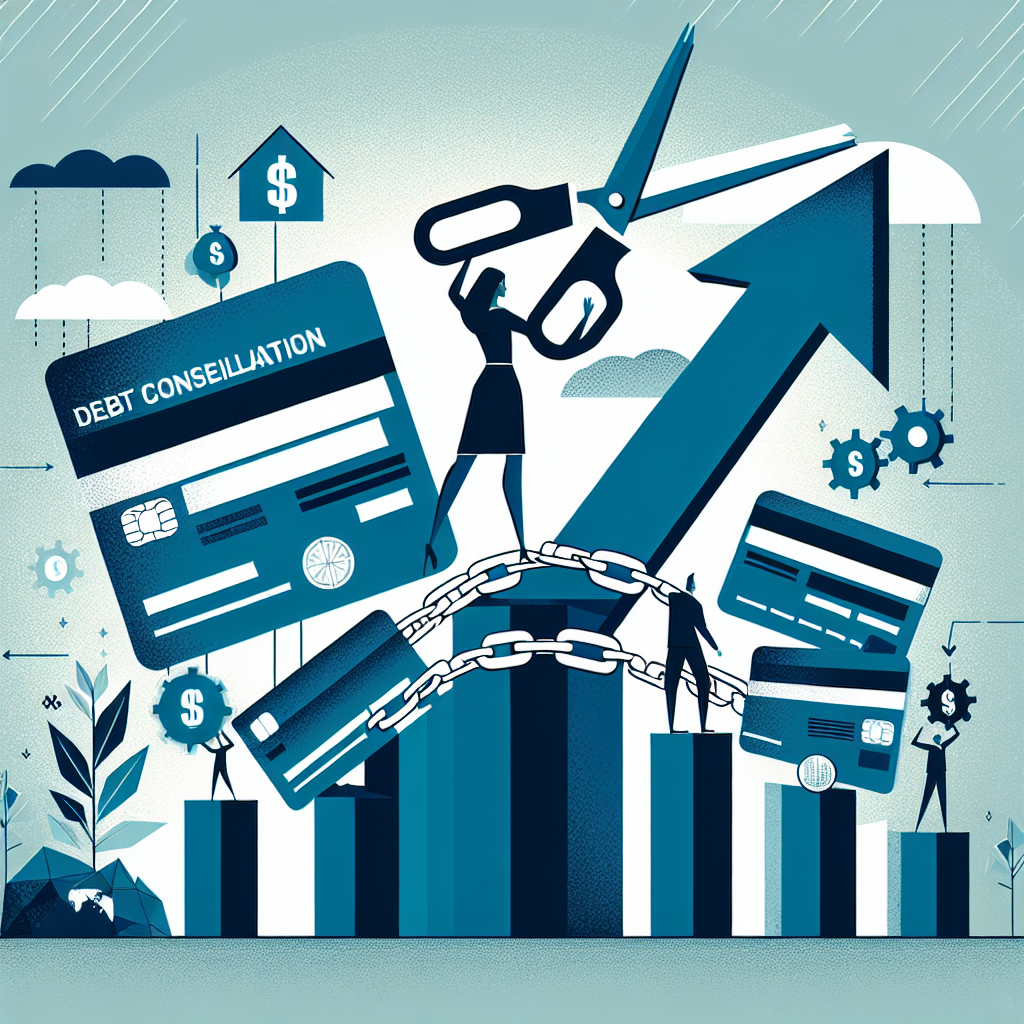Debt can be overwhelming. Whether it’s from credit cards, personal loans, or other financial obligations, the burden of debt can take a toll on your mental and emotional well-being. However, debt consolidation can be an effective strategy to regain control of your finances. In this comprehensive guide, we’ll explore debt consolidation, its benefits, and strategies to secure a debt-free future.
Understanding Debt Consolidation
Debt consolidation is the process of combining multiple debts into a single loan or payment plan. This can simplify your financial situation by making it easier to manage payments and, in many cases, reducing the amount of interest you pay.
How Debt Consolidation Works
When you consolidate debt, you typically take out a new loan to pay off existing debts. This can be done through various methods, including:
- Personal Loans: Unsecured loans from banks or credit unions that can be used to pay off multiple debts.
- Balance Transfer Credit Cards: Cards that allow you to transfer existing credit card balances, often at a lower interest rate.
- Home Equity Loans: Secured loans that use your home’s equity as collateral, which can offer lower interest rates.
- Debt Management Programs: Services from credit counseling agencies that negotiate with creditors on your behalf.
Benefits of Debt Consolidation
Debt consolidation offers several advantages that can help you on your journey to a debt-free future:
1. Simplified Payments
Combining all your debts into a single payment can streamline your financial management. You’ll only need to worry about one monthly payment, which reduces the chances of missed payments and associated late fees.
2. Lower Interest Rates
Many forms of debt consolidation, especially personal loans and balance transfer credit cards, offer lower interest rates than typical credit cards. This can lead to significant savings over time.
3. Improved Credit Score
By consolidating your debts and making consistent payments, you may improve your credit score over time. Debt consolidation can lessen your credit utilization ratio and/or increase your payment history, both of which are critical factors in your credit score.
4. Stress Reduction
Having multiple debts can be stressful. Consolidating your debts can alleviate some of that pressure, allowing you to focus on other important aspects of your life.
Effective Strategies for Successful Debt Consolidation
To make the most of debt consolidation and ensure a debt-free future, consider the following strategies:
1. Assess Your Debt Situation
Before moving forward with debt consolidation, take stock of your current debts. List all your outstanding balances, interest rates, and monthly payments. Understanding the total amount owed is crucial for choosing the right consolidation method.
2. Explore All Options
There are various forms of debt consolidation available. Compare interest rates, terms, and fees associated with each option. A personal loan may be suitable for some while others might benefit from a balance transfer credit card.
3. Create a Budget
Implement a budget to manage your expenses after debt consolidation. Allocate funds for your new consolidated payment while ensuring you can cover your essential living costs.
4. Avoid Future Debt
After consolidating, it’s vital to avoid accumulating new debt. Cut down on unnecessary spending, and consider putting credit cards away until you have established a strong financial foundation.
5. Monitor Your Progress
Regularly check your financial progress and review your credit report. Keeping an eye on your credit will help you stay motivated and on track towards achieving a debt-free future.
Common Mistakes to Avoid
While debt consolidation can be beneficial, it’s important to avoid common pitfalls that could hinder your journey toward financial freedom:
1. Ignoring the Root Cause of Debt
Consolidation is not a cure-all. Address any underlying issues that led to debt accumulation, such as poor spending habits or lack of budgeting skills.
2. Choosing the Wrong Type of Consolidation
Selecting a form of debt consolidation that doesn’t suit your financial situation can worsen your debt. Ensure thorough research and possibly consult a financial advisor for guidance.
3. Overlooking Hidden Fees
Certain debt consolidation options may come with fees that can offset your savings. Always read the fine print and factor in any potential expenses when calculating your potential savings.
Conclusion
Debt consolidation can be a powerful tool in achieving a debt-free future. By simplifying payments, reducing interest rates, and improving your credit score, you can reclaim control over your financial life. Utilizing effective strategies and avoiding common mistakes will empower you on your journey toward financial independence. Remember, the road to a debt-free future is a marathon, not a sprint—commit to your plan, and financial freedom will follow.

